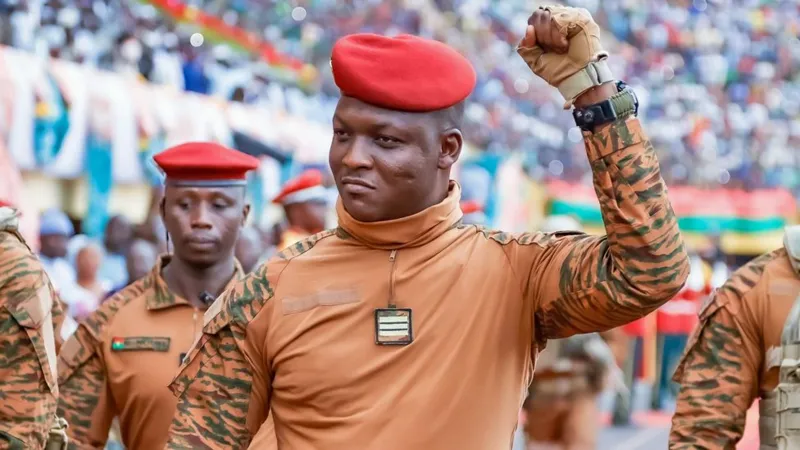In recent months, the political landscape of Burkina Faso has captivated global attention. The leader of the country’s military junta, Captain Ibrahim Traoré, has emerged as a controversial yet compelling figure whose actions and rhetoric have resonated with many both within Africa and beyond. While military takeovers often evoke skepticism or condemnation, Traoré’s approach has sparked a nuanced debate, with evidence suggesting he has captured the hearts and minds of many for reasons rooted in national sovereignty, security, and change.
Challenging the Status Quo: A Push for Sovereignty
Burkina Faso has experienced a tumultuous political history marked by coups and instability. Since gaining independence from France in 1960, the nation has faced repeated challenges, including insurgencies by jihadist groups. The current junta, led by Traoré since his seizure of power in September 2022, positions itself as a force seeking to restore Burkina Faso’s sovereignty and resist external influence. Many citizens, weary of foreign intervention and ineffective governance, see Traoré as a leader who aims to put Burkina Faso first. His emphasis on national pride resonates with a populace eager to reclaim control over their destiny.
Security and Stability in the Face of Extremism
One of the primary reasons Traoré’s leadership has garnered support is his focus on combating jihadist insurgencies that have ravaged the Sahel region. Since 2015, Burkina Faso has suffered from violent attacks by groups linked to Al-Qaeda and ISIS, leading to thousands of deaths and displacements. The military government has prioritized anti-terror operations, asserting that restoring security is paramount. While critics question the methods used, many locals appreciate the increased efforts to protect their communities. Traoré’s claims of intensified military actions and promises to restore stability have struck a chord with citizens tired of chaos.
A Promise of Change and Youth Engagement
Burkina Faso has a young population, with over 60% under 25 years old. Traoré’s rise symbolizes a break from traditional political elites. His military background and promises of reform appeal to youth seeking a different future—one where their voices are heard and their aspirations fulfilled. Moreover, the junta’s rhetoric emphasizes anti-corruption measures and social justice, which are vital issues for many Burkinabé. This promise of tangible change, combined with a youthful energy, helps explain the emotional connection many feel toward Traoré.
National Pride and Anti-Imperialist Sentiment
Throughout history, African leaders who challenge Western dominance often gain admiration from their populations. Traoré’s narrative frames Burkina Faso as a nation asserting its independence from neo-colonial influences—an image that resonates broadly. His stance aligns with a broader regional sentiment that seeks to reduce reliance on external powers and foster regional cooperation. This anti-imperialist stance fosters solidarity among supporters who see Traoré as a defender of national dignity.
Media and Global Narratives
Internationally, stories highlighting Traoré’s efforts to restore order and sovereignty have circulated widely. While some Western governments express concern over the military takeover, others acknowledge the complex security environment and the need for stable leadership. Social media has amplified narratives portraying Traoré as a leader standing up against chaos and external interference, further bolstering his image among supporters who seek a strong, independent Burkina Faso.
Conclusion: A Leader in a Complex Context
While opinions about Burkina Faso’s military leadership remain divided, evidence suggests that Ibrahim Traoré has managed to capture hearts and minds through his emphasis on sovereignty, security, and youth engagement. His leadership reflects a broader desire among many Burkinabé for stability, dignity, and self-determination. As the country navigates its uncertain path forward, Traoré’s influence underscores the complex ways in which leadership, identity, and hope intertwine in a nation striving for a better future.
Email Us on editorial@nnafrica.com













